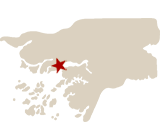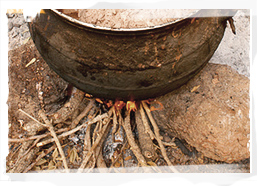An Introduction to Guinea-Bissau
Guinea-Bissau was once part of the kingdom of Gabu, parts of which were still in existence until the 18th Century while others became part of the Portuguese Empire from the 16th Century. From the 19th Century the whole area was known as Portuguese Guinea. Independence was recognised in 1974, with the name of the capital, Bissau, added to avoid confusion with the neighbouring Republic of Guinea. See full country profile.Latest Research News from Africa
1 current African job:

GOVERNMENT: republic
AREA: 36,125 sq km
POPULATION: 1,596,677 (July 2011 est.)
MAJOR LANGUAGE: Official language Portuguese (spoken by small minority); many others - 44% speak Crioulo

Some business and general info
The Market Research Industry
Trade and Industry in Guinea-Bissau
A little More Knowledge?
Go to next country
Guinea-Bissau was once part of the kingdom of Gabu, parts of which were still in existence until the 18th Century while others became part of the Portuguese Empire from the 16th Century. From the 19th Century the whole area was known as Portuguese Guinea. Independence was recognised in 1974, with the name of the capital, Bissau, added to avoid confusion with the neighbouring Republic of Guinea.
Guinea-Bissau's GDP per capita is one of the lowest in the world with more than two-thirds of the population living below the poverty line and long-running political instability further depressing the economy and contributing to deteriorating social conditions.
GDP: $1.784 billion (2010 est.) - $1,100 per capita (2010 est.)
Religions Muslim 50%, indigenous beliefs 40%, Christian 10%
Currency: West African Franc (XOF) - GBP 1 = XOF 752
Telephone Code: +245
The economy of Guinea-Bissau slumped with the rapid exodus of the Portuguese civilian, military and political authorities in 1974. Monetary stability came from entry into the CFA franc monetary system in 1997, but civil war the following year and a military coup in 2003 put the economy back in the doldrums. Here it has mostly remained, with continued military unrest and the assassination of a President in 2009.
In 2010 $126m worth exports left the country - much of it fish, shrimp, cashew nuts, peanuts, palm kernels and sawn lumber, and much going to India and Nigeria. Imports for the same period totalled $206.1m and came from a broader range of countries including Portugal, Senegal, India, the Netherlands, China, Thailand and Brazil. The main items were food, machinery and petroleum.
Email me:
laurence@mrweb.com

